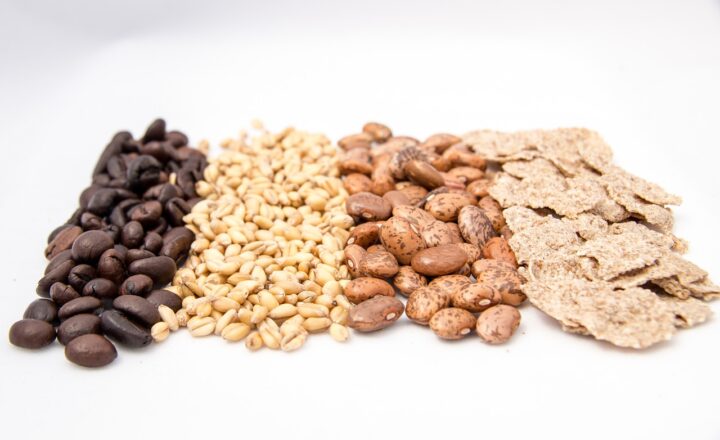The Role of Enzymes in Breaking Down Food in Your Body
November 16, 2024

Enzymes are biological catalysts that play a crucial role in breaking down the food we consume into nutrients that our bodies can absorb and utilize. Without enzymes, the conversion of complex food substances into simpler, absorbable components would be significantly slower, making digestion impossible. This article explores the various types of enzymes involved in the digestive process, their functions, and their importance for overall health.
1. What are Enzymes?
Enzymes are proteins that accelerate chemical reactions in living organisms. They function by lowering the activation energy required for a reaction to occur, allowing processes that would otherwise happen very slowly to proceed at a rate sufficient to support life. Enzymes are incredibly specific, meaning each enzyme typically catalyzes a specific reaction or set of reactions.
2. Types of Digestive Enzymes
When food enters the body, it undergoes various stages of digestion, and multiple types of enzymes are involved in this process:
- Amylase: This enzyme breaks down carbohydrates into simple sugars. Amylase is present in saliva, where it begins the digestion of carbohydrates, and also in the pancreas, where it continues this process in the small intestine.
- Protease: Proteases break down proteins into smaller peptides and amino acids. They are secreted by the stomach (as pepsin) and by the pancreas into the small intestine to aid in protein digestion.
- Lipase: This enzyme is responsible for digesting fats. Lipases break down triglycerides into free fatty acids and glycerol. Lipase is produced in the pancreas and acts in the small intestine, where dietary fats are broken down for absorption.
- Lactase: Lactase is an enzyme that breaks down lactose, the sugar found in milk. It is particularly important for infants but may decrease in production as individuals age, leading to lactose intolerance in some people.
- Cellulase: Although humans do not produce cellulose-digesting enzymes, this enzyme is responsible for breaking down cellulose in plant material, which is important for herbivores. Some beneficial gut bacteria assist in digesting cellulose for better nutrient absorption.
3. How Enzymes Work in Digestion
When we eat, food undergoes mechanical breakdown in the mouth and stomach, but the real magic happens chemically through enzymatic reactions. Here’s a step-by-step breakdown of the digestive process involving enzymes:
- Mouth: Saliva, containing amylase, starts the digestion of carbohydrates. Food is broken down into a bolus and swallowed.
- Stomach: Gastric juices containing hydrochloric acid and pepsin begin to digest proteins. The acidic environment helps activate digestive enzymes and breaks down food further into a semi-liquid form known as chyme.
- Small Intestine: Chyme enters the small intestine, where it is mixed with bile (for fat digestion) and pancreatic juices containing lipases, proteases, and amylases. This is where most nutrient absorption occurs, assisted by villi and microvilli on the intestinal walls.
- Large Intestine: Any undigested food moves to the large intestine, where water is absorbed. Gut bacteria play a role in fermenting some of the remaining food, which can help in nutrient absorption but does not require human digestive enzymes.
4. Importance of Digestive Enzymes
The body’s ability to break down food into its constituent parts is vital for several reasons:
- Nutrient Absorption: Without adequate enzyme activity, the body may not break down essential nutrients effectively, leading to deficiencies and health issues.
- Digestive Health: A proper balance of digestive enzymes promotes a healthy gut, aiding in the prevention of digestive disorders such as bloating, gas, and constipation.
- Energy Production: Enzymes assist in extracting energy from food. The metabolic conversion of macronutrients into usable energy (ATP) is vital for bodily functions.
- Hormonal Balance: Certain enzymes are involved in synthesizing and regulating hormones, which further underscores their importance for overall health.
5. Factors Affecting Enzyme Activity
Several factors influence how well enzymes function in the digestive system:
- pH Level: Each enzyme operates optimally at a specific pH. For instance, pepsin works best in the acidic environment of the stomach, while alkaline conditions in the small intestine favor pancreatic enzymes.
- Temperature: Enzymes have an optimal temperature range. Extreme temperatures can denature enzymes, causing them to lose their functionality.
- Presence of Inhibitors: Certain substances can inhibit enzyme activity, reducing their effectiveness. For example, antacids can raise the pH in the stomach and inhibit pepsin function.
6. Supporting Digestive Enzyme Function
To promote optimal enzyme function, consider these tips:
- Maintain a Balanced Diet: Eating a variety of whole foods—fruits, vegetables, whole grains, lean proteins, and healthy fats—ensures you receive the nutrients that support enzyme production and function.
- Stay Hydrated: Proper hydration helps enzymes work effectively. Water is vital for digestion and nutrient absorption.
- Include Fermented Foods: Foods such as yogurt, sauerkraut, and kombucha introduce beneficial bacteria that can aid in the digestive process and enhance enzyme activities.
- Consider Supplementation When Necessary: For individuals with digestive disorders or enzyme deficiencies, supplements like lactase, protease, and lipase can help improve digestion.
Conclusion
Enzymes play an essential role in the digestive process, allowing our bodies to convert food into energy and nutrients needed for survival. Understanding how these enzymes work can help us appreciate our body’s complex and remarkable digestive system. A healthy diet, proper hydration, and supportive lifestyle choices are vital in ensuring that our digestive enzymes function effectively, promoting optimal health and well-being.
In conclusion, enzymes are not merely facilitators of digestion; they are an integral component of our entire metabolic process, signifying the importance of nurturing them for lasting health.






